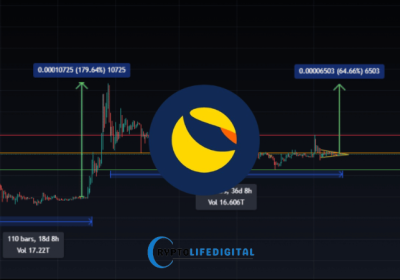How Can Blockchain Influence Voting Systems?

Blockchain technology has the potential to revolutionize the voting system, making it more secure, transparent, and trustworthy. With traditional voting systems often plagued by issues like voter fraud and manipulation, blockchain-based voting systems offer a decentralized and tamper-proof solution.
What is blockchain technology, and how can it be applied to voting systems?
Blockchain is a distributed ledger technology that records transactions in a secure and transparent manner. It is a decentralized system that is not controlled by any single entity or authority, and every transaction on the blockchain is verified and recorded by multiple parties, making it virtually impossible to manipulate.
When it comes to voting, blockchain technology can provide a secure and transparent system that ensures the integrity of the electoral process. By using blockchain-based voting systems, voters can cast their ballots in a secure and tamper-proof environment, while election officials can ensure the accuracy and transparency of the vote count.
Read Also: Ripple Whales Move Almost 1 Billion XRP Following The SVB Exposure
Benefits Of Blockchain In Voting System
- One of the main benefits of blockchain-based voting systems is that they eliminate the need for intermediaries, such as election officials, to verify the authenticity of the votes. Instead, the votes are verified by the blockchain network, which consists of multiple nodes that verify and record every transaction on the blockchain.
This decentralized approach to voting ensures that there is no single point of failure, making it virtually impossible for hackers or other malicious actors to manipulate the vote. Additionally, because the blockchain network is transparent, election officials and voters can verify the authenticity of the vote count at any time, ensuring the integrity of the electoral process.
- Another benefit of blockchain-based voting systems is that they offer increased accessibility and convenience to voters. With traditional voting systems, voters are often required to physically go to a polling station to cast their ballot. However, with blockchain-based voting systems, voters can cast their ballots from anywhere, at any time, using a computer or mobile device. This increased accessibility and convenience can encourage more people to participate in the electoral process, leading to higher voter turnout and a more representative democracy.
Read Also: Blockchain Tech Can Revolutionize The Healthcare Industry. See How
Possible challenges that could fight against the integrity of Blockchain and Solution
- Despite the numerous benefits of blockchain-based voting systems, there are also several challenges that must be addressed before they can be widely adopted. One of the main challenges is ensuring the privacy of the vote. Because the blockchain ledger is transparent, it is possible for anyone to see how an individual has voted. To address this issue, some blockchain-based voting systems use encryption to protect the privacy of the vote, while others use a mix of anonymity and verifiability to ensure that votes are counted correctly without revealing the identity of the voter.
- Another challenge is ensuring the security of the blockchain network itself. While blockchain technology is considered to be highly secure, it is not immune to attacks. Hackers could potentially attack the network, compromise the nodes, or manipulate the vote count. To mitigate this risk, blockchain-based voting systems must use robust security measures, such as encryption, multi-factor authentication, and decentralized storage to ensure the integrity of the network and protect against cyber threats.
Countries are already Utilizing the Blockchain tool in their voting system
Despite these challenges, many countries and organizations are already exploring the use of blockchain-based voting systems. In 2018, West Virginia became the first state in the United States to use blockchain technology to facilitate voting in a federal election. Other countries, such as Estonia, have also implemented blockchain-based voting systems, with impressive results. In Estonia’s 2019 parliamentary elections, over 44% of the votes were cast online using a blockchain-based voting system, with no reports of fraud or manipulation.
In conclusion, blockchain technology has the potential to transform the voting system, making it more secure, transparent, and trustworthy. By using blockchain-based voting systems, voters can cast their ballots in a secure and tamper-proof environment, while election officials can ensure the accuracy and transparency of the vote count.
Follow us on Twitter, Facebook, Telegram, and Google News

Cryptolifedigital is a cryptocurrency blogger and analyst known for providing insightful analysis and commentary on the ever-changing digital currency landscape. With a keen eye for market trends and a deep understanding of blockchain technology, Cryptolifedigital helps readers navigate the complexities of the crypto world, making informed investment decisions. Whether you’re a seasoned investor or just starting out, Cryptolifedigital’s analysis offers valuable insights into the world of cryptocurrency.









